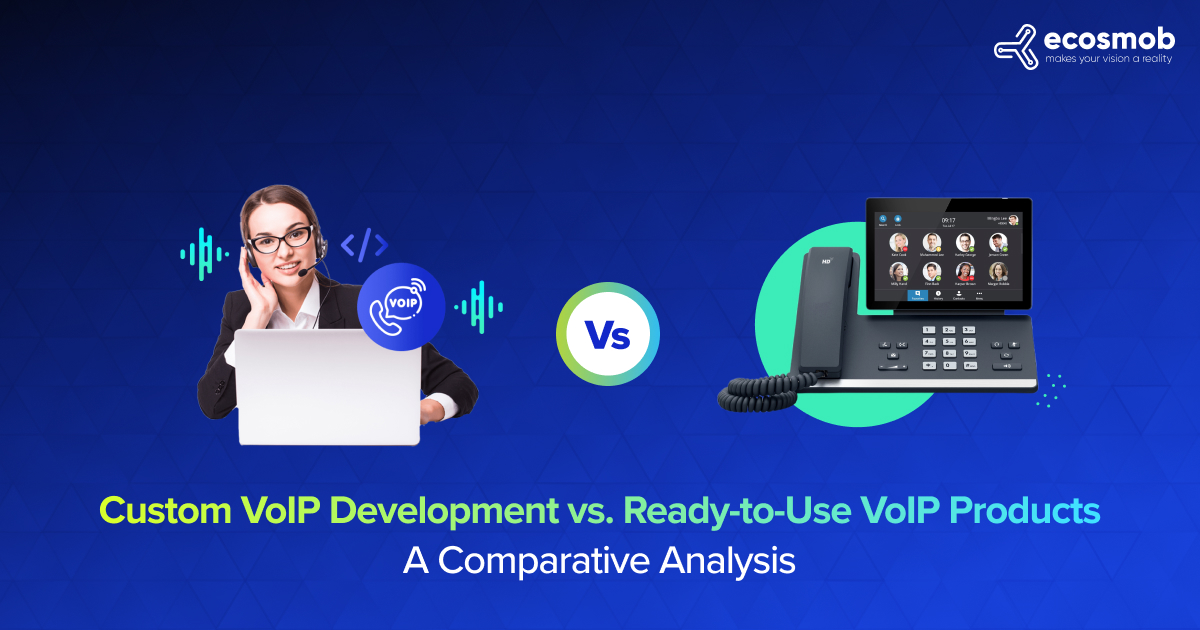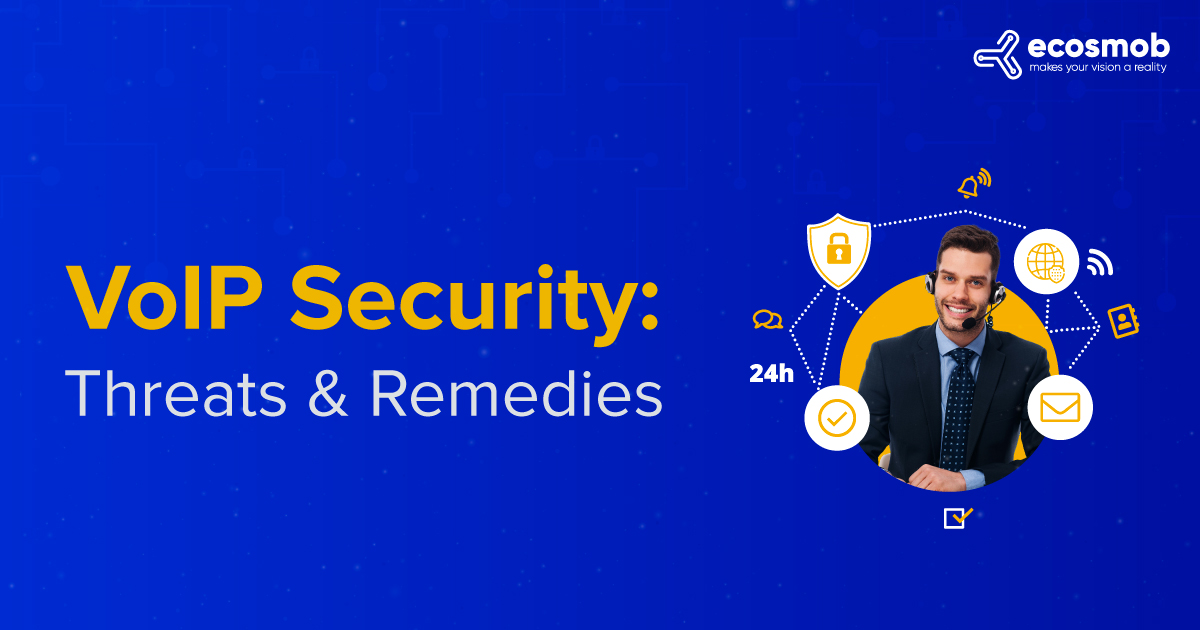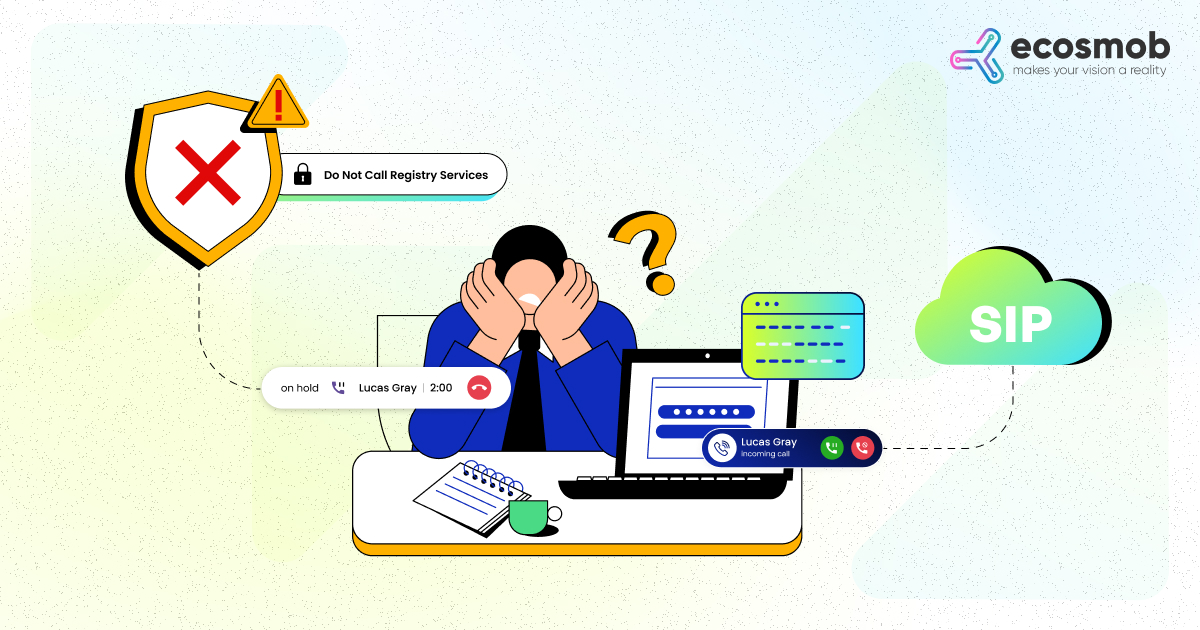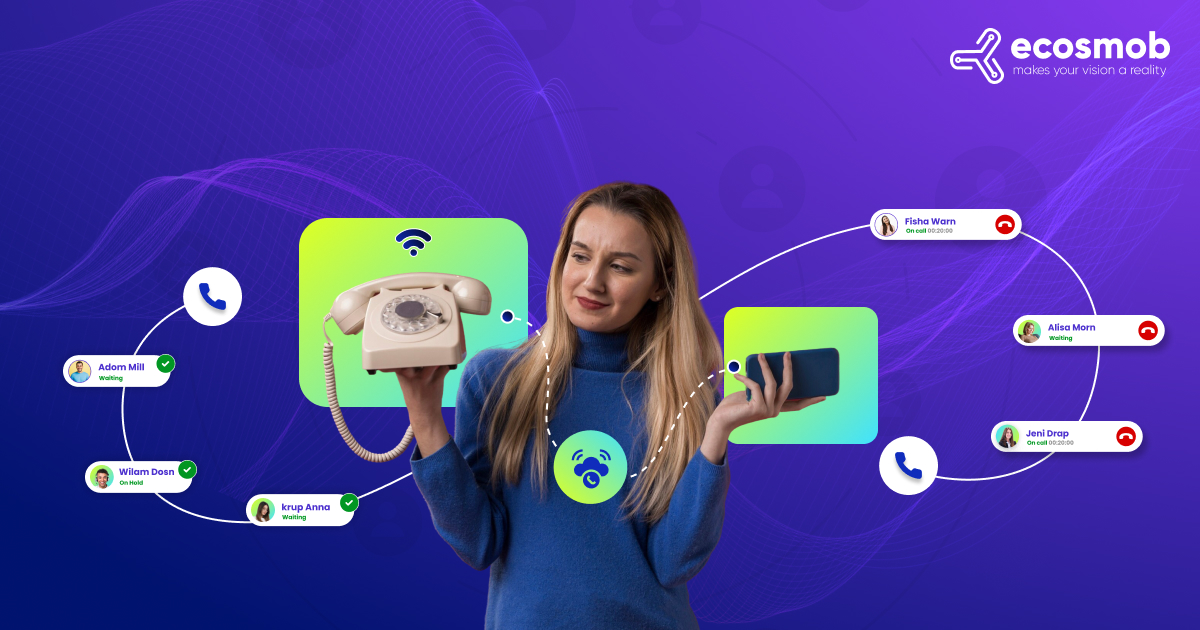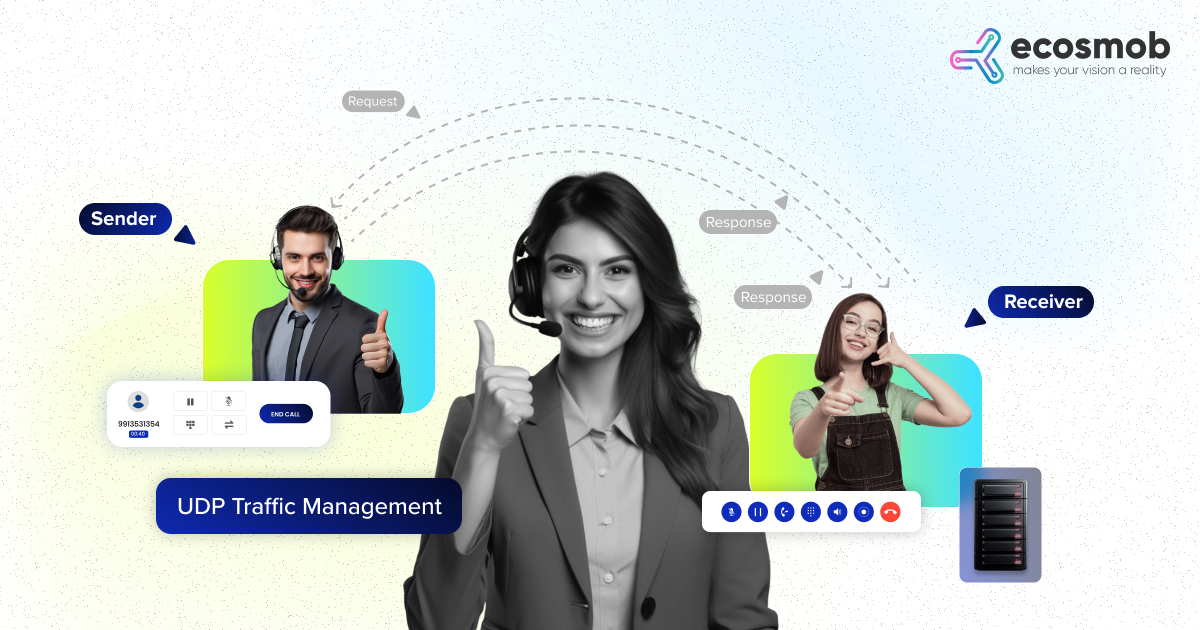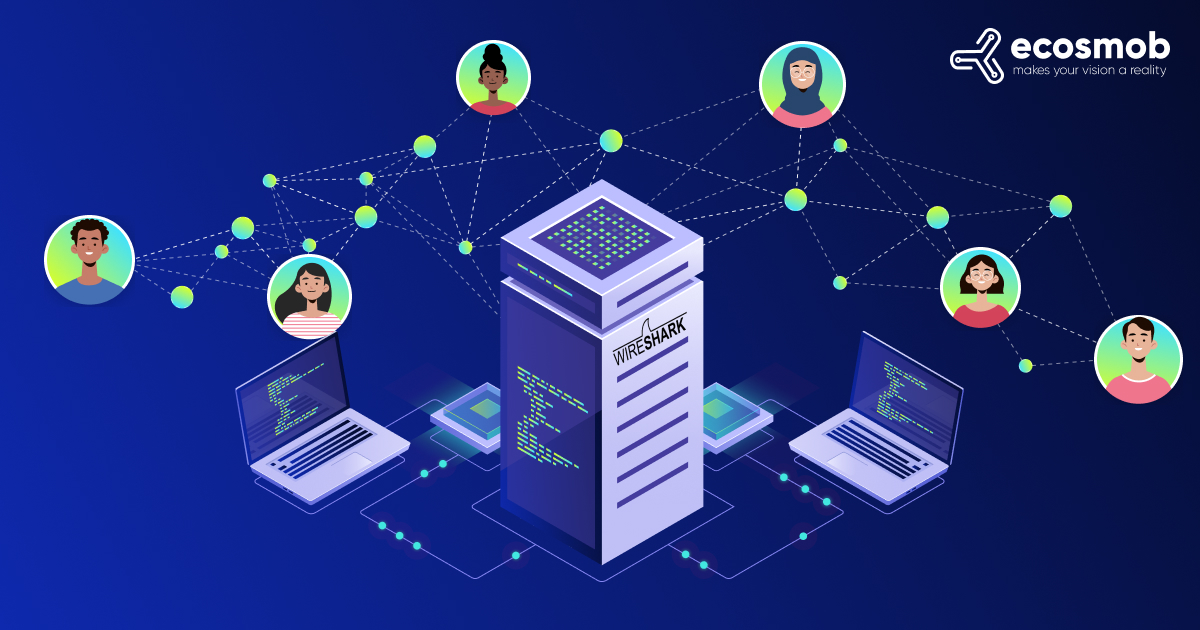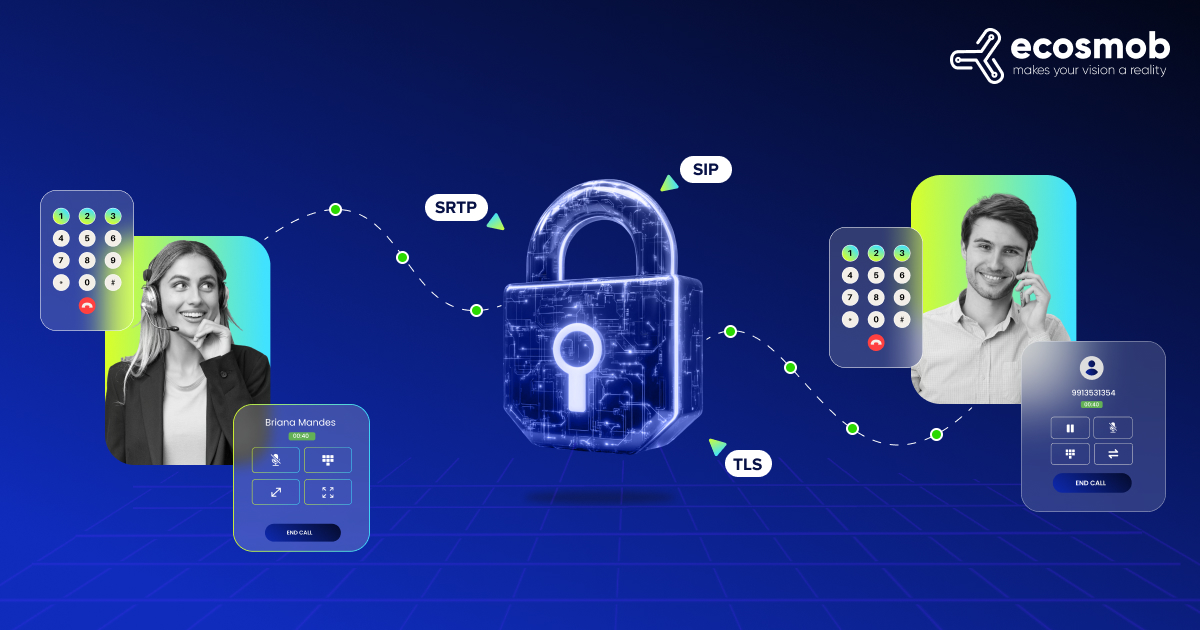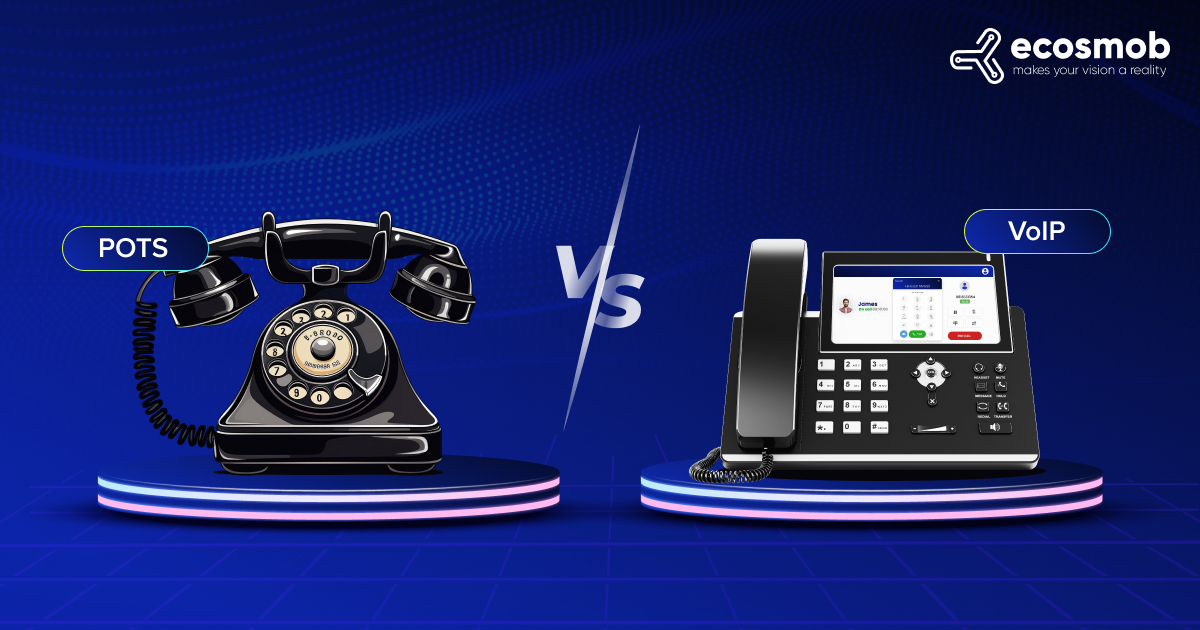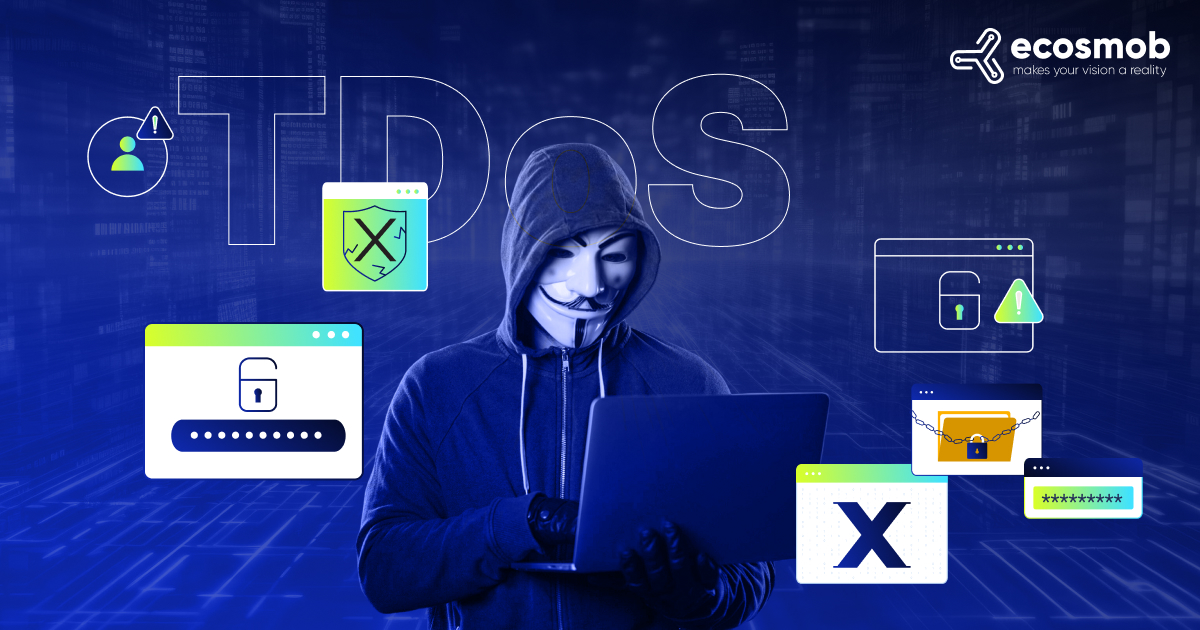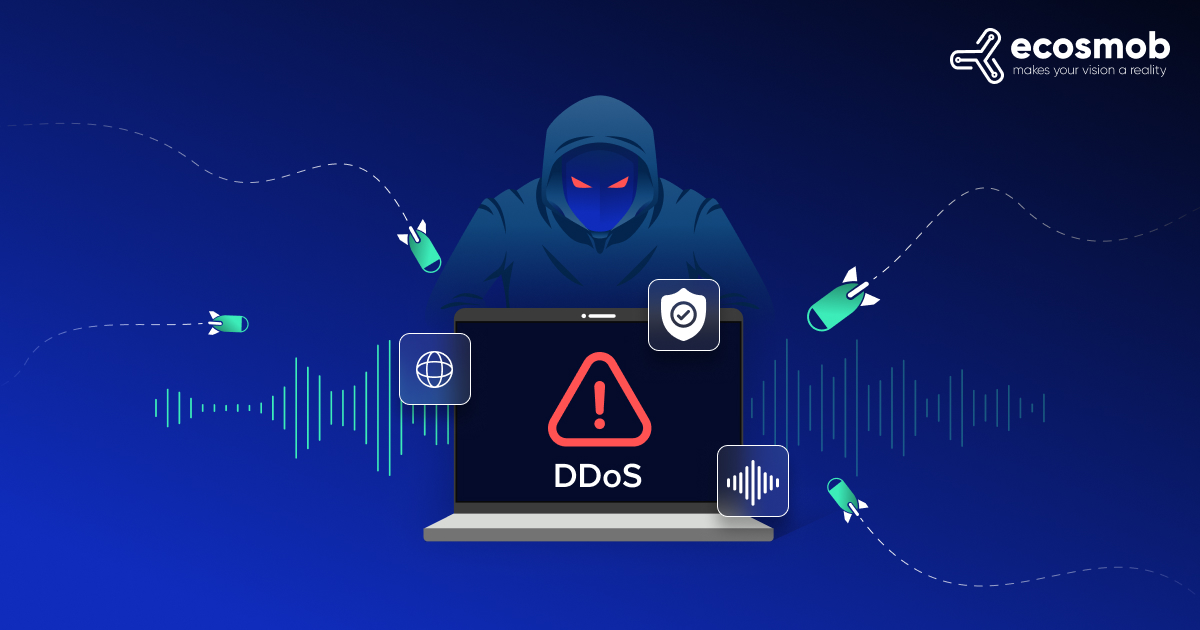QUICK SUMMARY
The article covers key VoIP security threats, common VoIP vulnerabilities, and effective VoIP security solutions to protect your communication systems. Major headings include types of attacks like DDoS, ransomware, vishing, and packet sniffing, along with best practices such as encryption, VPNs, and multi-factor authentication to enhance VoIP encryption and ensure secure, private communication.
Is your VoIP system truly secure – or are you leaving the door open to cyberattacks?
Let’s see!
Key Highlights –
- 🔐 Unmask the Threats – Learn about major VoIP security threats like DDoS, vishing, and ransomware that could disrupt your business.
- 🛡️ Proven Protection Tactics – Discover actionable VoIP security solutions including encryption, VPNs, and multi-factor authentication.
- 📞 Secure Every Call – Get expert insights on boosting VoIP privacy and eliminating vulnerabilities for safe, seamless communication.
With businesses increasingly relying on internet-based communication, VoIP security has never been more important. Sure, VoIP makes communication faster and more affordable, but have you ever thought about the hidden VoIP security threats that come with it?
From data breaches and identity theft to VoIP attacks like phishing and toll fraud, the risks are real – and they can get expensive fast.
Let’s break it down.
Since VoIP transmits data over the internet, it’s exposed to many VoIP security issues – and that means hackers can sneak in, steal sensitive info, or rack up huge bills with unauthorized calls. Sounds scary, right?
But don’t worry – there are solid VoIP security solutions out there to protect your system.
By tackling these VoIP risks head-on with proper encryption, network monitoring, and smart configurations, you can protect your VoIP privacy and make sure your communication stays safe. This quick guide walks you through the key VoIP security risks, common VoIP security threats, and how to deal with them using top-notch VoIP security solutions.
Don’t let VoIP security issues hold your business back – understand the threats, stay alert, and keep your system locked down.
Ready to fight off VoIP attacks and secure your calls? Let’s dive in.
Is Your VoIP system safe? Let’s review it. Our experts would love to help!
Why Does VoIP Security Matter So Much?
Well, think of it this way – your business conversations, client details, and sensitive data all travel over the internet when you use VoIP. Without proper VoIP security solutions in place, you’re basically leaving the door wide open for VoIP attacks, data breaches, and identity theft.
From VoIP privacy to protecting against VoIP vulnerabilities like eavesdropping or toll fraud, securing your communication isn’t just smart – it’s essential. With rising VoIP security threats and ever-evolving VoIP risks, having solid security for VoIP ensures your business runs smoothly and your reputation stays intact.

What are VoIP Security Threats?
We all love the powerful features and cost-effectiveness of VoIP, but let’s be honest – no tech is perfect. With all the perks come a few bumps in the road, and in the case of VoIP, those bumps are serious VoIP security threats. While you’re reaping the benefits of seamless calls and multimedia communication, VoIP vulnerabilities might be quietly growing in the background.
Our blog on “90 Best VoIP Features to Grow Your Business” dives deep into the transformative power of VoIP. But knowing what is VoIP security and the potential security concerns for VoIP systems is equally important if you want to truly safeguard your business.
Let’s talk about what types of security threats exist for a VoIP system – and more importantly, how you can tackle them head-on.
DID YOU KNOW?
Somewhere, someone could be making international calls on your dime “while watching cricket highlights”.
1. DDoS Attacks
If there’s one term that makes IT folks lose sleep, it’s DDoS – Distributed Denial of Service. These attacks are especially nasty for MSPs and ISPs sharing the same servers. With a massive spike of 75.6% in DDoS incidents in early 2022 (as per Nexusguard), it’s clear that this VoIP security risk isn’t going away anytime soon.
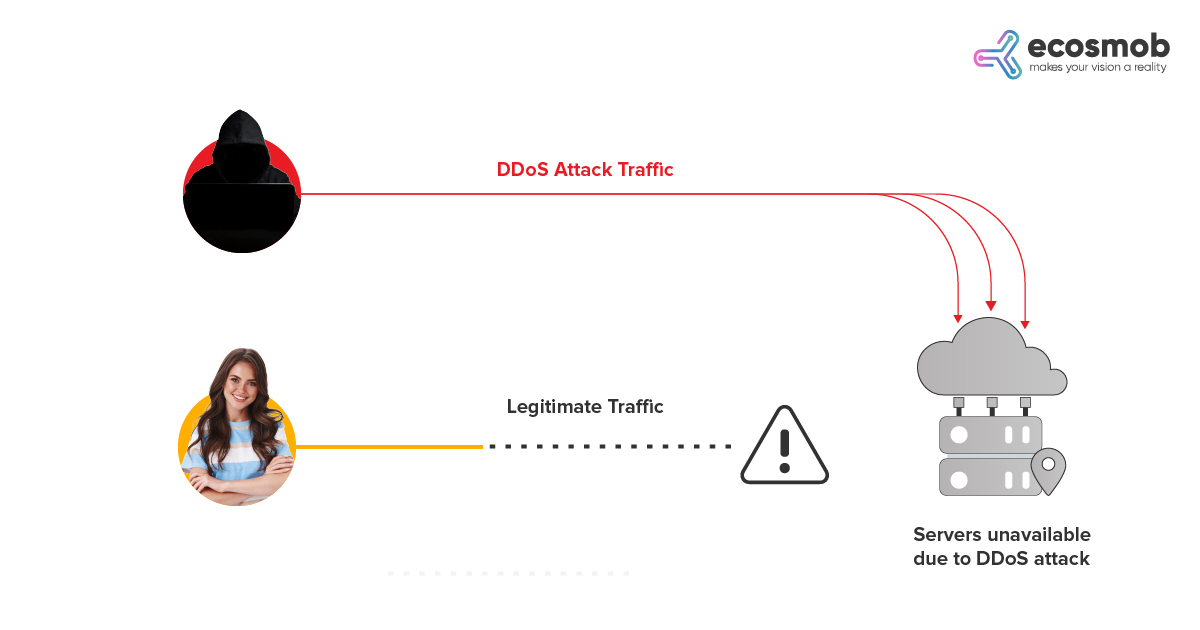
How to handle it:
The good news? You can stop DDoS in its tracks with the right VoIP security solutions. Using content delivery networks and intelligent threat detection algorithms helps identify and stop abnormal behavior before it wreaks havoc. Investing in these security for VoIP solutions is a no-brainer.
2. Packet Sniffers
Ever heard of someone eavesdropping on your calls? That’s packet sniffing in action. Hackers intercept unencrypted voice data while it’s still in transit – making it a critical VoIP security threat. These VoIP vulnerabilities are especially dangerous in 2023 due to the rise in voice data usage.
How to handle it:
Encrypt your data end-to-end. Tools like Ecosmob offer encryption-rich, VoIP privacy-focused custom solutions. And if you’re not already using a VPN – get on that! A business-grade VPN provides a secure tunnel that blocks unwanted interception.
3. Black Storm Attacks
Sound ominous? That’s because it is. Black storm attacks use compromised devices to overload your VoIP network, choking it completely. These attacks are easier to launch than DDoS and can be devastating.
How to handle it:
Stay a step ahead by running regular vulnerability scans, enforcing router restrictions, and using AI-powered VoIP security solutions. These strategies are key in detecting weaknesses and keeping your network stable and responsive.
Also Read: Emerging VoIP Industry Trends to Watch
4. Ransomware Attacks
Remember the AIIMS ransomware attack? It’s a reminder that no system is safe unless it’s secure. Ransomware is malicious software that locks your data unless you pay up – and it’s a rapidly growing VoIP security risk.
According to Cybersecurity Ventures, ransomware costs could skyrocket to $265 billion by 2031.
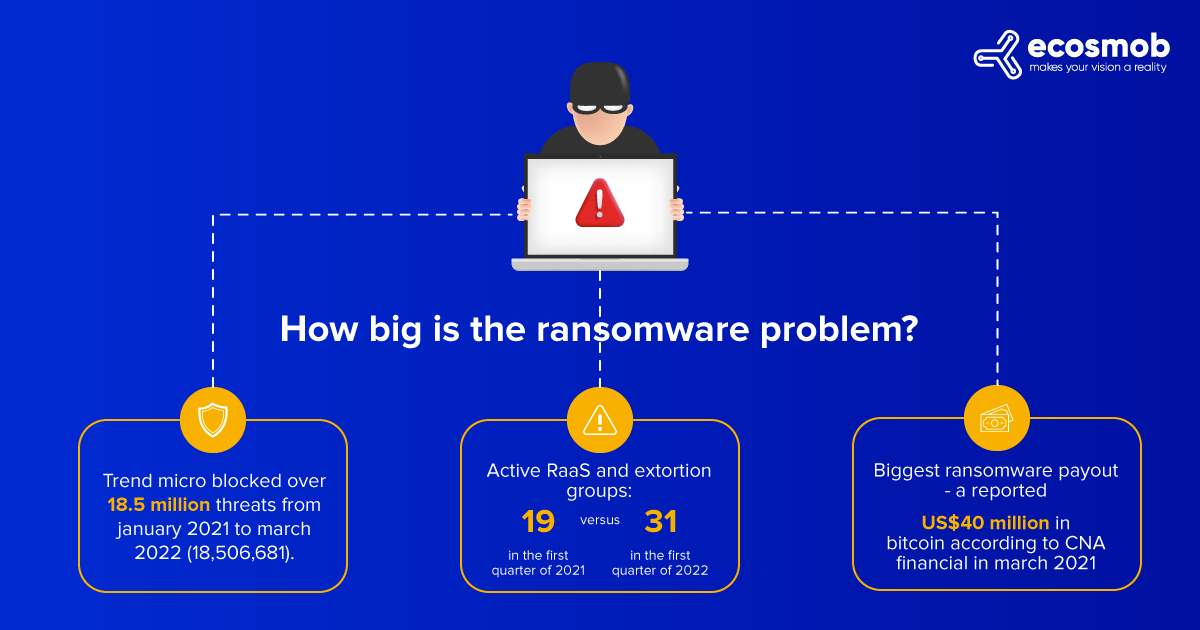
After the AIIMS ransomware attack, there have been multiple hack attempts on ICMR, Indian Council of Medical Research. The IP address of the hack attempts is reportedly based out of Hong Kong.
How to handle it:
Use intrusion detection systems, secure RDP ports, and partner with a VoIP security-savvy provider. These proactive steps go a long way in preventing VoIP attacks that could paralyze your entire operation.
5. Vishing (Voice Phishing)
This one hits close to home. Vishing uses VoIP phones to impersonate trusted contacts and extract sensitive info like bank details or passwords. Using tricks like Caller ID spoofing, it becomes hard to tell legit calls from scams.
How to handle it:
Don’t answer suspicious calls – let them hit voicemail. Register for “Do Not Call” lists and educate your team about phishing patterns. When it comes to VoIP security threats, awareness is often the best shield.
6. Malware and Viruses
From stealing data to hogging your bandwidth, malware is a major player in VoIP risks. It can seriously disrupt your service quality and open doors to more dangerous VoIP security issues.
How to handle it:
Arm your system with top-tier anti-virus and anti-spyware. Reduce admin privileges, apply spam filters, and implement strong email security practices. A little caution goes a long way in maintaining VoIP privacy.
How to Improve VoIP Security
Let’s talk about beefing up your defenses. If you’ve been wondering what is VoIP security or what types of security threats exist for a VoIP business phone systems, it all comes down to having a layered approach. Let’s break down the essentials:
1. Data Encryption
Encryption ensures only the right people can access your data. With protocols like TLS and SRTP, your calls and servers are protected. Ecosmob, a reliable VoIP security solutions provider, uses these techniques to safeguard communication from end to end.

If you still need help shortlisting a VoIP solutions provider, read our guide – How to Choose the Best VoIP Solutions Provider? It will clarify some vital points to keep in mind while choosing the right VoIP solution partner.
2. Disable International Calling or Use Geo-Fencing
Toll frauds are no joke. Hackers exploit your system to make expensive international calls. This kind of scam is one of the oldest yet most damaging VoIP risks out there. The best way to save your VoIP phone system –
- Disable International Calling – If you do not make international calls
- Geo-Fencing – Use if your business requires you to make international calls.
Here’s your fix:
If you don’t need to call internationally, disable that feature. If you do, enable geo-fencing – define trusted locations for outbound calls. It’s a simple yet effective security for VoIP approach.
Also Read: Is VoIP Secure? How Does SBC Solution Transform Consumer Experience?
3. Use a Virtual Private Network (VPN)
VPNs encrypt your entire internet session, shielding you from VoIP security threats like packet sniffing and unauthorized access. A good VPN makes your session initiation protocol (SIP) nearly invisible to hackers.
Ecosmob recommends using a VPN to safeguard your VoIP traffic. It’s an essential tool in any VoIP security strategy.
For a reputable VPN recommendation, check Cybernews’ NordVPN review for top security, reliability, and speed.
4. Multi-Factor Authentication (MFA)
Adding another verification layer makes it harder for intruders to access your system. Whether it’s a passcode, fingerprint, or OTP – MFA significantly lowers VoIP security risks.
Some trending AI-ML advancements, for instance, OpenAI’s Chat GPT, DALL-E2, TinyML, and NLP, are already mirroring the future. Read – Top AI and ML Trends For 2023 to gain insight into some exciting trending technologies.
What is the Future of VoIP Security?
The future is layered – think encryption, firewalls, and intelligent authentication. With more businesses moving to cloud communications, the demand for airtight VoIP security is only growing. Companies need to monitor networks constantly and act quickly to contain VoIP attacks. As tech evolves, so do security concerns for VoIP. Staying proactive is the only way forward.
- AI-Powered Threat Detection – Smart algorithms now predict and block VoIP attacks in real-time, stopping threats before they strike.
- Machine Learning for Anomaly Detection – ML continuously learns network behavior to instantly flag unusual activities and VoIP security issues.
- Future-Ready Encryption & Automation – AI-driven encryption and automated security protocols are making VoIP systems more secure and hassle-free than ever.
Wrapping Up
Whether you’re operating remotely or from an office, securing your VoIP environment is non-negotiable. With robust VoIP security solutions, a proactive approach to VoIP vulnerabilities, and clear awareness of VoIP security issues, your communication systems can remain protected, reliable, and future-ready.
Ready to lock down your VoIP network and focus on growing your business – without fear?
The right VoIP security solutions make all the difference.
Secure your VoIP connection today!
FAQs
What is VoIP?
VoIP (Voice over Internet Protocol) is a technology that allows you to make voice and multimedia calls over the internet instead of traditional phone lines. It’s cost-effective, scalable, and packed with advanced communication features.
What types of security threats exist for a VoIP system?
VoIP systems can face several security concerns, including DDoS attacks, packet sniffing, vishing, toll fraud, and ransomware. These VoIP security threats can lead to data breaches, call disruptions, and financial loss if not managed properly.
How does VoIP encryption work?
VoIP encryption secures voice data by converting it into unreadable code during transmission. Protocols like SRTP (Secure Real-Time Transport Protocol) and TLS (Transport Layer Security) are used to keep VoIP privacy intact and prevent eavesdropping or data theft.
Why is VoIP security important for businesses?
Because VoIP handles sensitive voice and data communication, securing it is essential to prevent unauthorized access, data leaks, and service disruptions. Strong VoIP security solutions ensure business continuity and protect client trust.
What are the most common VoIP attacks?
Some of the most common VoIP attacks include vishing (voice phishing), toll fraud, DDoS (Distributed Denial of Service), packet sniffing, and man-in-the-middle attacks. These can compromise VoIP privacy and rack up heavy costs.



